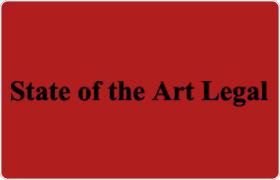Hialeah Criminal Lawyer, Florida, page 7
Sponsored Law Firm
-
 x
x

Click For More Info:
-
State of the Art Legal
200 S.E. 1st Street Suite 505 Miami, FL 33131» view mapCriminal Defense Law Expert Legal Defense
If you're facing a difficult situation, you may benefit from having a lawyer from State of the Art Legal represent you. Call our office in Miami, FL, to set up your appointment.
800-826-0121
Miredys Gonzalez Hernandez
Traffic, Litigation, Social Security, Criminal
Status: In Good Standing *Status is reviewed annually. For latest information visit here Licensed: 14 Years
Michael A Pizzi
Lawsuit & Dispute, Immigration, Criminal, Property Damage
Status: In Good Standing *Status is reviewed annually. For latest information visit here Licensed: 29 Years
Christina Diaz
Criminal, DUI-DWI, Divorce & Family Law, Family Law
FREE CONSULTATION
CONTACTEric Allen Waraftig
Lawsuit & Dispute, Divorce & Family Law, Criminal
Status: In Good Standing *Status is reviewed annually. For latest information visit here Licensed: 29 Years
Eric Matthew Matheny
Federal Trial Practice, Criminal
Status: In Good Standing *Status is reviewed annually. For latest information visit here
Aresh Dehghani
Real Estate, Employment, Criminal, Federal Trial Practice, Federal Trial Practice
Status: In Good Standing *Status is reviewed annually. For latest information visit here Licensed: 18 Years
Enrique Augusto Delapaz
Estate, Divorce & Family Law, Criminal, Traffic, Lawsuit & Dispute
Status: In Good Standing *Status is reviewed annually. For latest information visit here Licensed: 39 Years
Priscilla Ann Amaro
General Practice
Status: In Good Standing *Status is reviewed annually. For latest information visit here Licensed: 24 Years
Michael Cosculluela
Litigation, Family Law, Criminal, Real Estate
Status: In Good Standing *Status is reviewed annually. For latest information visit here Licensed: 26 Years
Maria D. Granda-Clayton
Commercial Real Estate, Family Law, Criminal
Status: In Good Standing *Status is reviewed annually. For latest information visit here Licensed: 14 Years
 Joshua Alexander Miami, FL
Joshua Alexander Miami, FL Practice AreasExpertise
Practice AreasExpertise